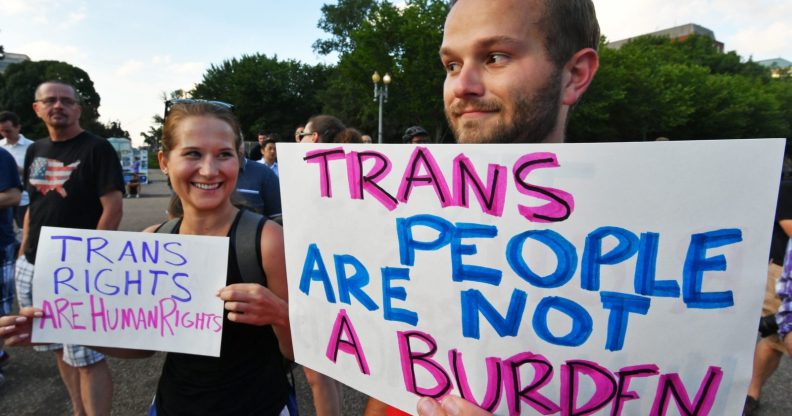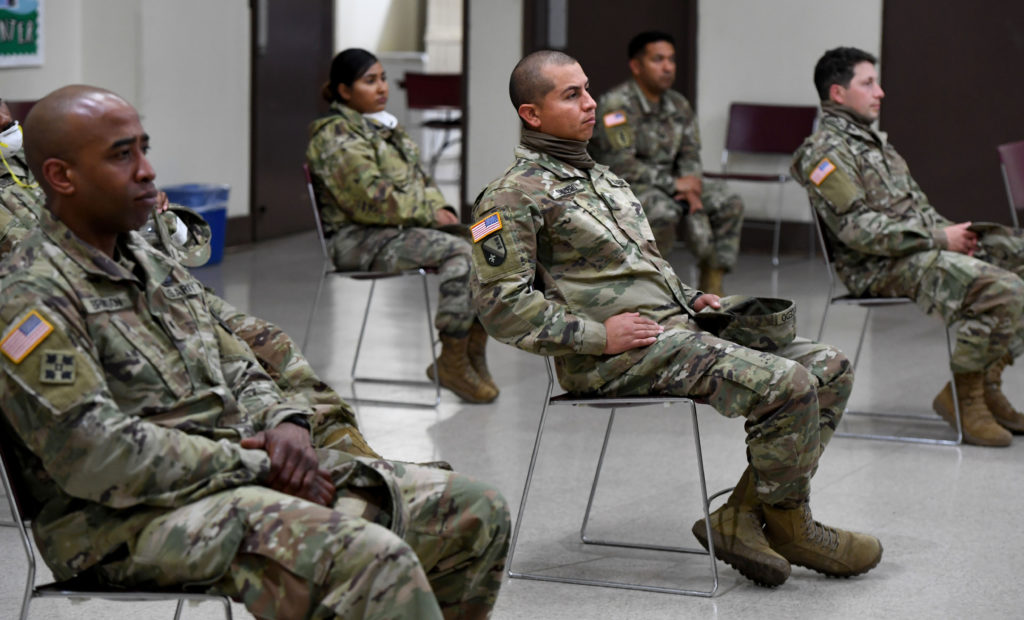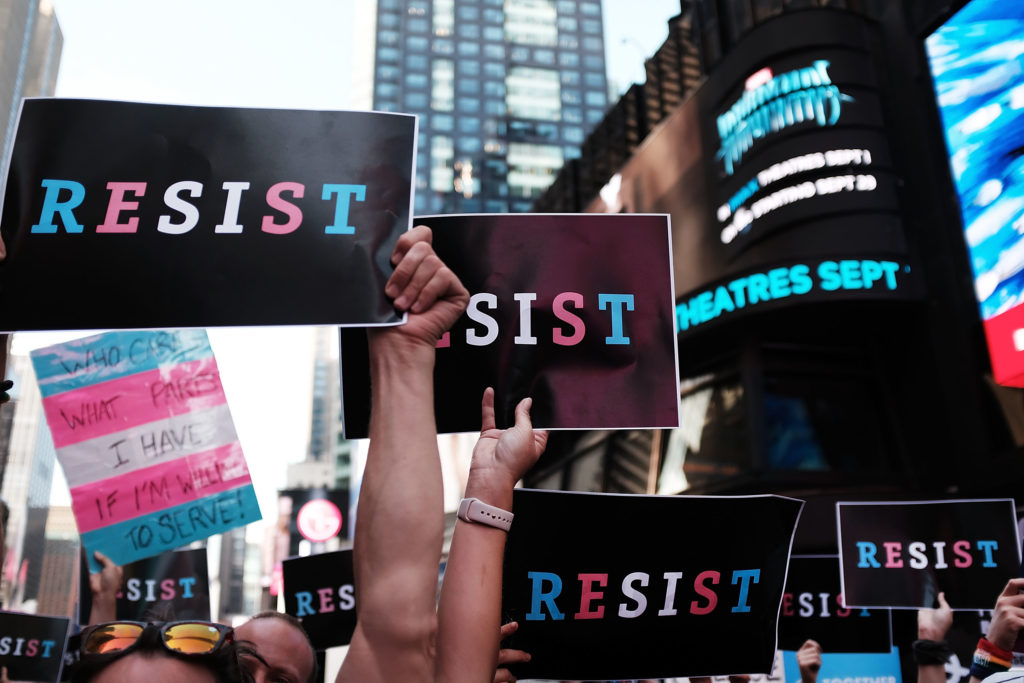One year on since the ban on trans people joining the US military, the coronavirus crisis is inspiring a fresh call to lift it

(Getty)
Sunday marks the first anniversary of a ban on trans people joining the US Armed Forces.
After months of litigation and controversy over the issue, the Defense Department levelled the policy that, to this day, nobody can figure out why it was even needed and what effect it has to positively impact those who enlist and serve.
The policy, Pentagon officials were at pains to stress at the time in 2019, does not discriminate or exclude based on gender identity.
Instead, it merely sees trans people being made to disavow their, uh, gender identity by not being able to use the uniforms, sleeping and bathroom facilities or pronouns of their, uh, gender identity.
A year on since the measure was enforced, and advocates amid court battles against the ban are urging officials to curtail it as the coronavirus crisis snarls recruitment drives, reported Reuters.
Calls to rescind trans troop ban policy intensify as coronavirus ravages recruitment.
The bulk of recruitment centres dotting the US have been shuttered in efforts to curb the climbing coronavirus caseload in the country which has emerged as the epicentre of the outbreak.
Nic Talbott is currently working at a Walmart in Ohio. Clocking-in and out of a grocery store in the grapples of coronavirus wasn’t exactly his first plan, however.
He wanted to enlist in the military but, as a trans man, he was barred.
“I almost feel like a caged animal – I’m just kind of standing here on the sidelines watching everything happen in front of me,” Talbott, 26, told the news wire.
“I am capable, qualified and willing to do more, but there’s this barrier in front of me that makes absolutely no sense.”
Talbott is on the front-line. Indeed, he is a plaintiff in one of four lawsuits filed in federal courts, winding through the justice system to challenge the Trump administration’s ban.
Yet, while the recruiting of trans soldiers was frozen last year, troops are needed now more than ever.

Members of The California National Guard will be helping with staffing at Long Beach temporary shelters. (Brittany Murray/MediaNews Group/Long Beach Press-Telegram via Getty Images)
Thousands of troops have been deployed across the states as part of the National Guard. Not armed with weighted armours or machinery, but bags of groceries and medical supplies.
Many have been roped by local authorities to clean nursing homes and remove victims’ bodies, a figure that has toppled to more than 20,000 as of Sunday.
Eager to join the reserve branch, however, is John Roberts. The 24-year-old trans man said: “It’s probably the most frustrating thing I’ve had to deal with in my entire life.”
“I’m ready, I’m here, I’m willing, I’m qualified.
“I want to get out there. And I want to help.”
‘I’ve surpassed most of the cisgender men that I train with’.
The pandemic has collided with state-enforced realities accepted by many as fact and necessary, but ones challenged for years but those marginalised and made vulnerable by them.
For example, the Food and Drug Administration relaxed guidelines to allow more queer men to donate blood.
As the outbreak bears down on all facets of daily life, advocates suggest, this may erode the apparent need for a trans troops ban.
Lambda Legal, an LGBT+ rights group, said the government must urgently roll back its anti-trans policy.

Dozens of protesters gather in Times Square near a military recruitment center to show their anger at President Donald Trump’s decision to reinstate a ban on trans folk from serving in the militar. (Spencer Platt/Getty Images)
“The dangers of discrimination come into sharpest focus in all-hands-on-deck moments like this, when we need every capable and talented person available,” said Peter Renn, a lawyer with the group.
“But the government has excluded a group of people based on a characteristic unrelated to merit,” she said, “the military is essentially cutting off its nose to spite its face.”
“There’s a lot of scepticism around whether or not we’re able to do it, but at the end of the day,” said Keycen Bradley, a 22-year-old who is training aspiring military recruits.
“I’ve surpassed most of the cisgender men that I train with,” he said, using a term that describes someone whose gender identity matches their birth sex.
“I’m able to do anything they’re able to do, if not more,” he continued, “if you’re holding back people that means you’re not really worried about the military at all, or about our safety and defence.”
A spokesperson for the US Department of Defense said: “The Department is not considering adjusting existing policy.”

